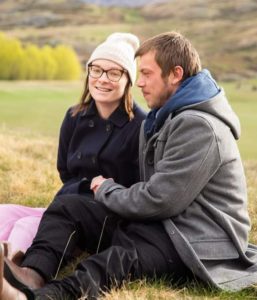
As Aucklanders celebrated New Year’s Eve with fireworks and gatherings, Gemma Malins was on a hospital bed.
The 28-year-old from Beachlands had a job with the local after school care, studied early childhood education and worked in two daycare centres.
Then, in mid-2018, she noticed the lump under the skin on her thigh.
The doctor told her it was “fat”. As the months passed she noticed the lump grew larger and she had a new one on her breast.
On her second visit to the doctor, they told her it was likely Lipoma (fatty lump) and that she “could pretty much rule out cancer”.
Upon moving to Beachlands in 2019, she met her GP who sent her to a specialist.
“Because I didn’t have health insurance, it was a three month wait,” Malins says.
She says her GP “understood me right from the start” and is “so kind and caring” and has been incredibly supportive throughout Malins’ journey.
She visited the specialist and received her biopsy results.
On October 2019 she was diagnosed with metastatic melanoma.
“It was quite a shock,” Malins says. “Not one doctor had sent me for further testing of these lumps.”
Malins says she feels let down by the health system as, for more than a year, doctors dismissed her worries.
Malins and her partner Brandon stopped working.
Keeping up with her studies was impossible.
One positive to the difficult situation was Malins and Brandon’s impromptu wedding and honeymoon to Paihia. “My husband never leaves my side,” she says. “He’s wonderful.”
Her first treatment was an intravenous immunotherapy called Keytruda. It seemed to be working until Malins received word that the tumours were growing.
In February she needed 4.5 litres of fluid drained from her abdomen. She also had radiation on three melanomas.
“It was horrible,” she says. “I had to wear a mask over my face as I was bolted down to the table to treat the one in my brain. It was very claustrophobic.”
She enjoys going out for walks, going to the beach, eating out, travelling, gardening and spending time with family and friends.
Malins told the Times that she feels people treat her differently because of her diagnosis.
“I’m not able to do things I used too,” she says. “I feel left out. I feel like my illness defines me.”
Her new treatment, ipilimumab, is her last option.
It costs her $12,000 every three weeks at a private clinic. Malin’s Nana kindly paid for the first one.
Now she is fundraising for the rest.
Celine Moshiem, Malins’ sister, set up a Givealittle page to help raise funds.
So far she has reached $52,000 out of her goal of $48,000.
“All I can do now is take one day at a time,” Malins says, “and make the most of every moment.”









